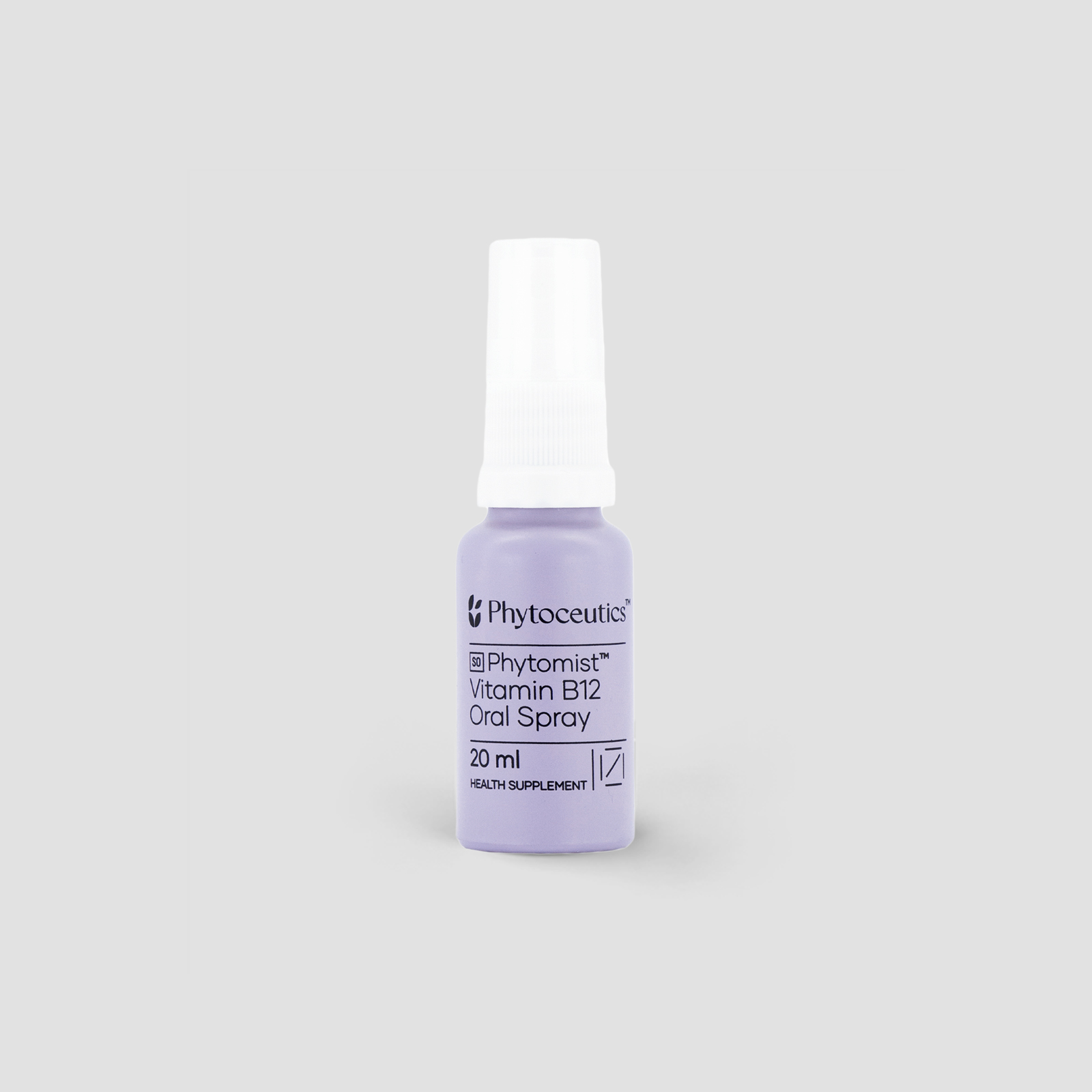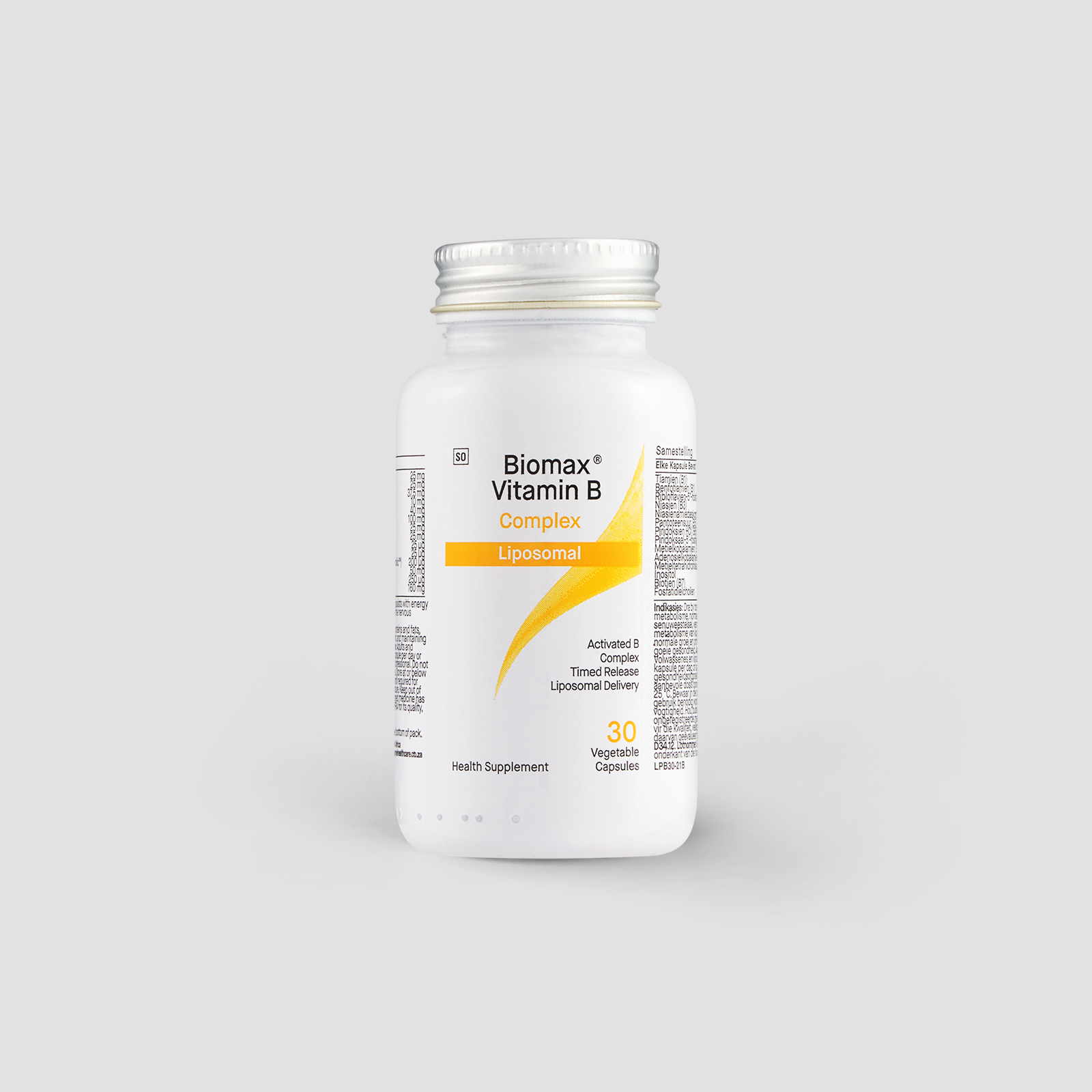One important lesson often overlooked is the profound impact of vitamins and minerals on our physical and mental well-being, and how they can vary throughout our lives. While essential for overall health, Vitamin B’s impact on maintaining mental well-being is often missed. If you’re seeking a boost to keep your mind sharp and focused, it’s time to discover the benefits of Vitamin B.
We’ve talked about vitamin B before: its benefits generally and specifically for skin health. Today, we’re homing in on the powerful connection between B vitamins and maintaining good mental health, helping you understand when it might be time to explore supplementation, and providing actionable insights to support a balanced mood and sharper cognitive function.
Why Vitamin B Matters for Your Mind
It’s easy to think of vitamins as solely physical health boosters, but the B complex (learn more about each one of the B vitamins ) is deeply entwined with how your brain functions. B vitamins don’t just provide energy; they’re crucial building blocks for neurotransmitters — the chemical messengers that dictate your mood, focus, sleep, and overall mental state. Let’s have a look at exactly how they work in your brain:
Neurotransmitter Symphony
Imagine your brain as an orchestra. B vitamins are the conductors, ensuring each instrument (neurotransmitter) plays in harmony. Vitamin B6, for example, is essential for producing serotonin (the “happy” hormone), dopamine (for motivation and pleasure), and GABA (for calming anxiety)1. Without adequate B6, this symphony can become discordant, leading to mood swings, irritability, or even more significant mental health challenges.
Brain Energy Boost
Just like any high-performance machine, your brain requires a constant and steady energy supply. B vitamins, particularly B1, B2, B3, and B5, are key players in converting glucose (the brain’s primary fuel) into usable energy2. When these vitamins are lacking, brain fog, difficulty concentrating, and mental fatigue can set in.
Homocysteine Harmony
Vitamins B6, B9 (folate), and B12 team up to regulate homocysteine levels in your blood3. Elevated homocysteine is increasingly linked to depression, cognitive impairment, and neurodegenerative diseases. By keeping these levels in check, B vitamins contribute to long-term brain health and resilience.
Myelin Magic
Vitamin B12 is essential for the formation and maintenance of myelin2, the protective sheath surrounding nerve fibres. Think of it as insulation for your brain’s wiring. Proper myelination ensures rapid and efficient nerve impulse transmission, which is crucial for clear thinking, sharp memory, and a stable mood.
Is Vitamin B Deficiency Affecting Your Mental Health?
Okay, so B vitamins are important. But how do you know if you might be lacking and experiencing mental health consequences? Here are some signs to watch for 4:
- Persistent fatigue and low energy: Feeling drained even after adequate rest? This is a classic symptom of many B vitamin deficiencies, as these nutrients are critical for energy production and nutrient metabolism
.
- Mood swings and irritability: Are you more easily agitated or prone to sudden emotional shifts? Imbalances in neurotransmitter production due to B vitamin deficiencies can contribute to mood instability.
- Difficulty concentrating or brain fog: Trouble focusing, remembering things, or experiencing mental clarity? These can all be signs of impaired brain energy metabolism or neurotransmitter function linked to low B vitamin levels.
- Numbness or tingling in hands and feet: This is particularly common with B12 deficiency and indicates potential nerve damage [6]. Since healthy nerve function is vital for brain health, this symptom shouldn’t be ignored.
- Increased anxiety or depressed mood: While B vitamins are not a cure for mental health disorders, deficiencies can exacerbate symptoms of anxiety and depression.
It’s crucial to remember that these symptoms can have many underlying causes. If you’re experiencing any of these, it’s essential to consult with a healthcare professional to rule out other potential issues and get an accurate diagnosis, before self-medicating with nature-based supplements.
When To Talk to Your Doctor About Vitamin B
While taking a B-complex supplement might seem like a quick fix, it’s important to approach supplementation thoughtfully. Here are some situations where it is worth visiting your doctor 5:
- You’re experiencing persistent symptoms: If you’ve noticed several of the symptoms mentioned above and they’re impacting your daily life, it’s time to seek professional guidance.
- You have dietary restrictions: Vegans and vegetarians are at higher risk for B12 deficiency, as this vitamin is primarily found in animal products. Strict diets can also limit other B vitamins, so if you’re feeling any or all of the symptoms mentioned, consult with your doctor.
- You have digestive issues: Conditions like celiac disease, Crohn’s disease, or frequent heartburn can interfere with nutrient absorption, including B vitamins.
- You’re taking certain medications: Some medications, like metformin (for diabetes) [7] and proton pump inhibitors (for heartburn), can interfere with B vitamin absorption.
- You’re over 50: As we age, our ability to absorb nutrients, including B12, tends to decline.
- You have a high alcohol consumption: Alcohol interferes with the absorption of vitamin B.
Your doctor can order blood tests to check your B vitamin levels and determine if a deficiency is present. They can also help you determine the appropriate dosage and form of B vitamin supplementation if needed.
Smart Strategies for Supporting Your Vitamin B Levels
Whether you’re addressing a diagnosed deficiency or simply aiming to optimise your mental well-being, here are some actionable steps you can take:
- Prioritise a balanced diet: Load up on B vitamin-rich foods like leafy greens, lean meats, eggs, nuts, seeds, and whole grains.
- Consider fortified foods: If you’re vegetarian or vegan, fortified plant-based milk, cereals, and nutritional yeast are valuable sources of B12.
- Manage stress: Chronic stress can deplete B vitamins, so prioritise stress-reducing activities like exercise, meditation, and spending time with friends and in nature.
- Limit alcohol intake: Excessive alcohol consumption can interfere with B vitamin absorption and utilisation, so if you’re feeling off, try taking it easy on the alcohol and see if it helps.
- Explore a comprehensive B-complex supplement: Look for a supplement that contains all eight B vitamins in bioavailable forms (i.e., forms that are easily absorbed and utilised by the body). Methylated B vitamins are great as they are already in their active form and are ready for immediate use by the body. Liposomal technology is also a plus as it ensures increased absorption through encapsulation, limiting the risk of the digestive system breaking down the vitamins before your body has absorbed them fully.
How To Choose a Vitamin B Supplement
Once you’ve discovered you’re running low on B vitamins, it’s time to choose a supplement, and there are many ways to do so. But how do you choose the right one for you? Do you focus on a B Complex, which gives you the RDA (recommended daily allowance) of all of them? Or do you go for something more specific, like a B12 or folate supplement? Do you get an injection, an IV drip, take a capsule, or try a spray? Each method has its pros and cons, but if you’re just getting started with Vitamin B supplementation, here are some pointers:
- Capsules & tablets: These are great for integrating into a supplementation routine. Choose one, which is more bioavailable (easier for your body to use) like our Biomax® Vitamin B Complex which has liposomal delivery for better absorption and utilisation. If you’d like a supplement that gives you a little more than just B vitamins, try Terranova B Complex which includes Vitamin C and a range of adaptogens to further support your brain.
- Vitamin Sprays: Some people struggle to take capsules and tablets. Either they don’t like to swallow them, find they suffer from gastric side effects, or they simply forget to do so. Our Phytoceutics® Phytopure® Vitamin B12 Oral Spray is designed to be highly palatable and easily accessible.
- Injections & IVs: In South Africa, at least, you will need a prescription from your doctor to get a Vitamin B injection. They are useful, especially if your levels are very low, but to maintain levels after the initial dose, you’ll have to find a supplementation regime that works for you. IVs, likewise, are helpful, but mostly in the short term. Additionally, they are time-consuming and often expensive, making them out of reach for many people.
- Complex or individual: If your doctor has confirmed specifically low levels in one of the B vitamins (say you are anaemic and want B12, or are pregnant and specifically want to supplement with folate) then take an individual supplement. If you suspect, or your levels have shown, that your B levels are generally low, then a B Complex will provide you with all the support you need.
What To Do if Vitamin B Isn’t the Solution?
If you’ve had blood tests and they’ve shown your Vitamin B levels aren’t the problem, what other options are there? Depending on the results of your blood test you could also be struggling with deficiencies in other vitamins or minerals, such as iron or magnesium. You may also need a little extra support through a difficult time, which is where adaptogens come in.
There are a couple of different options when it comes to supplementation support. You could try Ashwagandha for stress support, Saffron to support your mood, CoQ10 or Quercetin for cellular-level support, or NMN and Fisetin for healthy ageing and vitality.
The Bottom Line
Vitamin B is a vital nutrient for overall health and especially for supporting and maintaining mental well-being, playing a crucial role in everything from neurotransmitter synthesis to energy production. By recognising the signs of potential deficiency, seeking professional guidance when needed, and adopting smart strategies for optimising your Vitamin B levels, you can take proactive steps to support a balanced mood, sharper cognitive function, and greater mental resilience.
Remember, this article is intended to provide general information and should not be a substitute for professional medical advice. Always consult with a healthcare practitioner or registered dietitian for personalised recommendations. Your mental health is worth investing in, and ensuring adequate Vitamin B intake is a powerful tool in your wellness arsenal.




